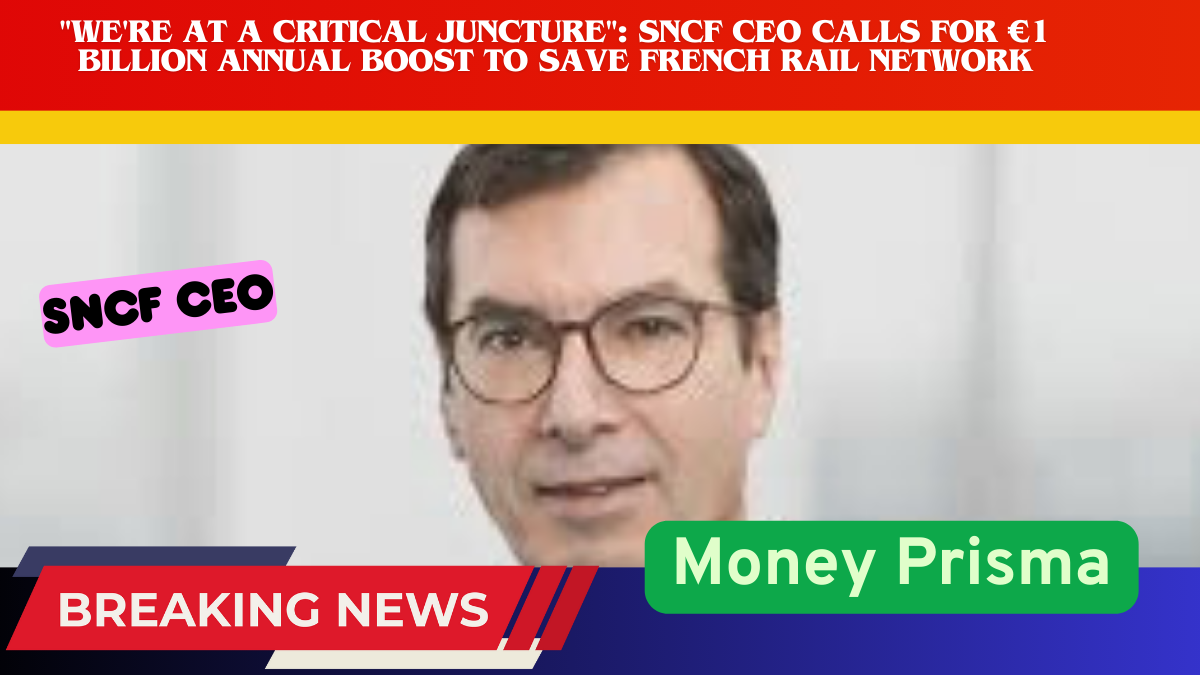The CEO of France’s national railway company, SNCF, has issued an urgent call for increased investment in the country’s aging rail infrastructure, warning of a looming crisis if action is not taken soon. Speaking on BFMTV, Jean-Pierre Farandou stressed the need for an additional €1 billion per year to maintain and modernize the national rail network, calling the current moment “a critical juncture.”
Without this additional funding, Farandou warned that 4,000 kilometers of railway lines could fall into disrepair by 2028, and the damage could expand to 10,000 kilometers by 2032. Such degradation would lead to widespread delays, breakdowns, and speed restrictions—posing a serious threat to the reliability and safety of French rail transport.
Extreme Weather Underscores the Risk
The CEO’s plea came just days after violent storms caused flooding and damaged rail infrastructure on the Bordeaux-Toulouse line. The incident served as a stark reminder of the vulnerability of the existing network, which Farandou says is under increasing pressure from climate-related disruptions, growing demand, and years of underinvestment.
Farandou emphasized that French trains are running at full capacity, with high demand from passengers—proof, in his view, that the public is eager to embrace rail as a sustainable mode of transport. “The French want more trains. All our trains are full,” he noted, stressing that the network must be up to the task.
€4.5 Billion Needed Annually—But €1 Billion Is Missing
According to Farandou, a total of €4.5 billion per year is needed to adequately maintain and develop the rail system. Currently, the ten-year performance contract between the French government and SNCF Réseau—the infrastructure arm of the SNCF—provides for an annual investment of around €3 billion from 2021 to 2030.
SNCF Réseau itself contributes an additional €500 million per year, bringing the total to €3.5 billion. That leaves a shortfall of roughly €1 billion annually, which Farandou insists must be found to prevent a “negative spiral” of decline and degradation.
“If this investment isn’t made,” Farandou warned, “we’re opening the door to systemic failure across the network.”
How to Find €1 Billion? Farandou Suggests Creative Financing Options
To cover the gap, Farandou proposed several financing options—some of which are politically sensitive. At the top of his list: a tax on heavy goods vehicles (HGVs). Though he carefully avoided calling it by name, the idea strongly resembles the “ecotax” that was proposed and ultimately scrapped in 2013 following large-scale protests in Brittany, particularly by the “Red Caps” movement.
Farandou pointed to Germany as a successful example. The German government recently implemented a similar road tax on freight trucks traveling on national highways, which now generates €8 billion annually, he noted. That revenue is being funneled into rebuilding and modernizing the country’s railway system, where punctuality issues have become a national concern, with over 40% of trains running late.
A Revived Ecotax—But This Time Targeting Transit Trucks
In France, Farandou argues, foreign freight trucks transiting through the country reap the benefits of the road system without contributing financially. “They fill up in Luxembourg, drive across France, pollute the air, damage our roads—and we collect nothing,” he lamented.
For Farandou, a targeted tax on transit trucks—as opposed to those operated by domestic French transport companies—would represent a “fair contribution for using French infrastructure.”
This proposal isn’t new. In fact, François Durovray, then Minister of Transport, floated a similar idea in September 2024. But Farandou’s renewed endorsement of the concept may bring it back into the national conversation, particularly amid France’s growing climate and infrastructure concerns.
Other Revenue Sources: Highways and Carbon Credits
Farandou also proposed tapping into two other financial sources:
- Future Profits from Highway Concessions
Many of France’s motorway concessions will reach the end of their contracts in the next decade. Farandou suggested reallocating a portion of the revenue from future highway operations to support railway investment. - Leveraging Carbon Pricing and Energy Efficiency Certificates
He further suggested utilizing EU carbon emissions trading revenues (ETS) and energy savings certificates as financial tools to support the transition to greener transportation. These instruments, commonly used to fund energy transitions, could be redirected to help finance low-carbon rail projects.
Government Talks in Progress Amid Broader Infrastructure Debates
Farandou’s comments come during an ongoing national debate on how to fund France’s transport infrastructure over the next decade. The French government launched the “Ambition France Transports” conference on May 5, a ten-week consultation bringing together industry leaders, public officials, and policy experts to devise funding strategies for major transport upgrades.
While discussions are ongoing, the question of where to find the needed funds—especially in the current constrained fiscal environment—remains open.
Public Sentiment and Political Obstacles
Although the demand for rail is strong, the political landscape surrounding new taxes remains fraught. The memory of the failed ecotax in 2013 still looms large in French politics. Any proposal perceived as unfair or overly burdensome on certain sectors—especially the transport and logistics industries—risks sparking backlash.
However, with increasing public concern over climate change, road congestion, and deteriorating infrastructure, there may be more political will today than a decade ago to push through bold, sustainability-oriented reforms.
The Bigger Picture: Rail as a Key to Sustainable Transport
Farandou’s call to action is more than just a plea for funds; it’s a vision for rail as the backbone of a cleaner, more resilient, and future-ready transportation system. As France seeks to reduce its carbon footprint and meet its climate targets, modernizing its rail infrastructure is no longer optional—it’s essential.
Failing to act, he warns, would not only lead to service disruptions and growing public dissatisfaction but would undermine national efforts to shift freight and passenger traffic away from high-emissions road transport.
“We have the trains. We have the passengers. What we need now is the infrastructure to keep up,” Farandou concluded.

